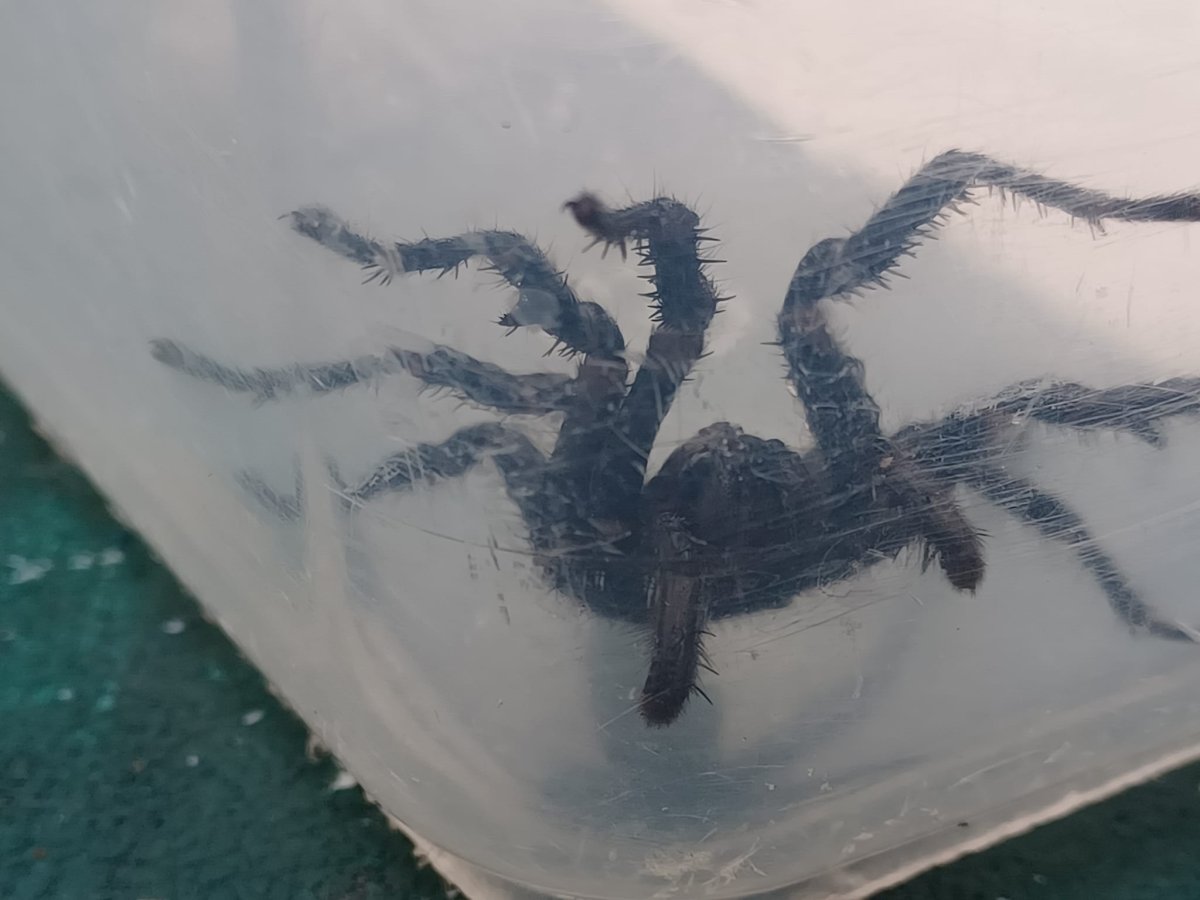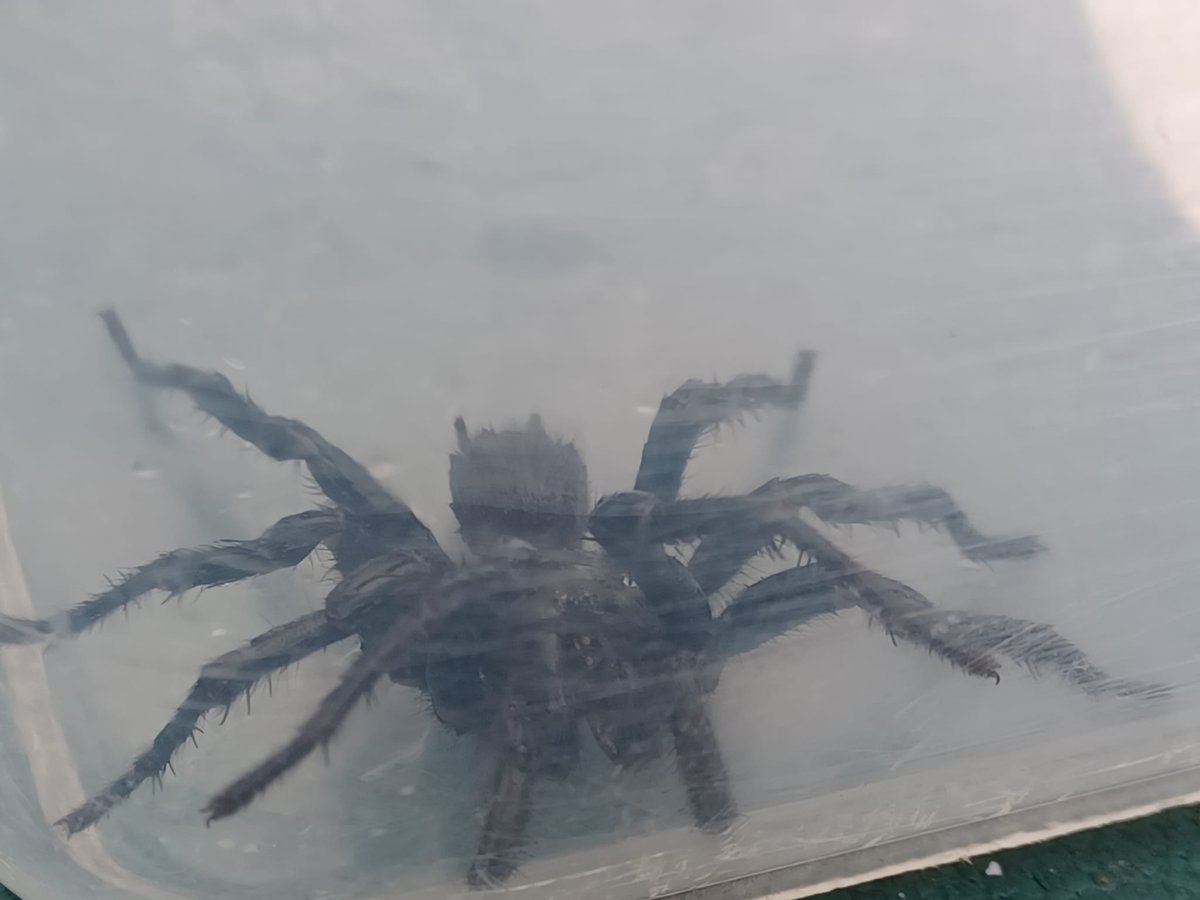While sipping on his morning coffee, Sydney, Australia, resident Dan Smith caught sight of an enormous spider flailing around in his pool.
When Smith first saw the creature, he assumed it was just another trapdoor spider, a typically harmless species. Only after he scooped it up in a jar did he realize what he had found: a funnel-web spider.
Smith confirmed his identification with spider hunter Scott Johnson, who said "you could not get a deadlier spider in your house."
The funnel-web spider was 3 inches long and was trying to climb out of the pool. Smith described the deadly arachnid as very active and very fiery. "It would sit up on its back legs, ready to strike," he told Newsweek.

The encounter took place on March 25, just days after Smith found a similarly large trapdoor spider in the exact same place.
Funnel-web spiders are among the deadliest spider species in the world. According to the Australian Museum, the species seen in Smith's pool—a Sydney funnel-web spider—is the most dangerous funnel-web of all, having been responsible for all recorded deaths among this group of spiders to date.
The venom of the male Sydney funnel-web contains a powerful neurotoxin, known as delta-atracotoxin, which can cause muscle spasms, dangerous drops in blood pressure, coma and organ failure if left untreated. According to a toxicity report by St. Luke's University Hospital in Pennsylvania, envenomation can result in death in as little as 15 minutes (for small children) if antivenom is not administered.

At least 13 deaths have been recorded from male Sydney funnel-web spiders, although no one has died from this species since the introduction of antivenom in 1981.
The native range of this spider is centered around the Sydney region in New South Whales, which means that they often come into contact with people and property.
Smith shared the photos of the spider on Facebook in a post that received several concerned comments from other users.
"Time to pack up and move," said one commenter, with another writing, "Whoa no thanks."
Smith described the encounter as an "awakening" and a reminder to keep an eye out for dangerous wildlife, even on your own property. "You never know what could be swimming with you," he told Australia's 9News. "Always double-check, especially if you have kids."
Uncommon Knowledge
Newsweek is committed to challenging conventional wisdom and finding connections in the search for common ground.
Newsweek is committed to challenging conventional wisdom and finding connections in the search for common ground.
About the writer
Pandora Dewan is a Senior Science Reporter at Newsweek based in London, UK. Her focus is reporting on science, health ... Read more
To read how Newsweek uses AI as a newsroom tool, Click here.








